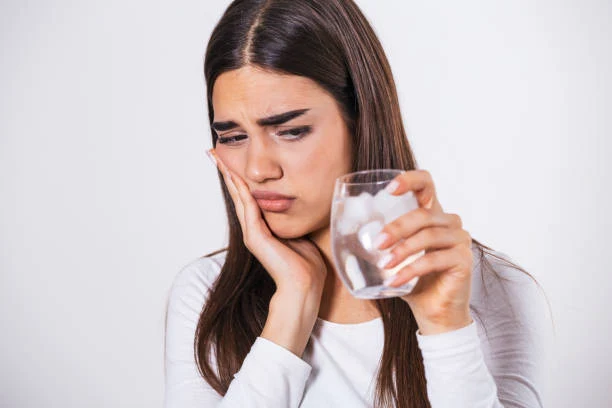Burning Sensation from Cold Drinks: Causes Unveiled
Burning Sensation from Cold Drinks: Causes Unveiled
Burning Sensation from Cold Drinks: Causes Unveiled
Introduction:
Sipping on a refreshing cold drink can be a delightful way to quench thirst, especially on a hot day. However, for some individuals, the experience may be marred by an unexpected sensation—a burning or stinging feeling in the mouth or throat upon consuming cold beverages. This phenomenon, known as cold-induced burning or cold hyperalgesia, can be perplexing and uncomfortable. In this article, we'll delve into the potential causes of the burning sensation from cold drinks, explore underlying conditions that may contribute to this phenomenon, and discuss strategies for alleviating discomfort.Understanding Cold-Induced Burning Sensation:
The sensation of burning or stinging in the mouth or throat when consuming cold drinks is a common complaint experienced by many individuals. While it may be temporary and benign in some cases, it can also be indicative of an underlying issue that warrants further investigation. Some potential causes of cold-induced burning sensation include:Tooth Sensitivity:
One of the most common causes of discomfort when consuming cold drinks is tooth sensitivity. This occurs when the protective enamel on the teeth becomes worn down or damaged, exposing the underlying dentin and nerve endings. When exposed to cold temperatures, the nerves in the teeth may react by sending signals of pain or discomfort, resulting in a burning sensation.Oral Allergy Syndrome:
Oral allergy syndrome, also known as pollen-food syndrome, is a condition in which individuals experience allergic reactions to certain fruits, vegetables, or nuts. In some cases, consuming cold drinks containing allergenic foods or ingredients may trigger symptoms such as itching, tingling, or burning in the mouth and throat. This reaction occurs due to cross-reactivity between proteins in the food and airborne allergens like pollen.Acid Reflux:
Gastroesophageal reflux disease (GERD) or acid reflux can cause irritation and inflammation of the esophagus, leading to a burning sensation in the chest or throat. When stomach acid flows back into the esophagus, it can come into contact with the sensitive lining of the throat, causing discomfort, particularly when consuming cold or acidic beverages.Nerve Sensitivity:
Some individuals may experience heightened sensitivity of the nerves in the mouth and throat, leading to an exaggerated response to cold temperatures. This condition, known as cold hyperalgesia, can result in a burning or stinging sensation upon exposure to cold drinks, even if there are no underlying dental or medical issues.Dry Mouth:
Dry mouth, or xerostomia, occurs when there is insufficient saliva production to keep the mouth moist and lubricated. Without an adequate saliva flow, the tissues in the mouth and throat may become dry and irritated, making them more sensitive to cold temperatures. As a result, consuming cold drinks may exacerbate the discomfort and lead to a burning sensation.Other Potential Causes:
In addition to the above-mentioned factors, certain medications, oral infections, dental conditions, or underlying health issues may contribute to the sensation of burning from cold drinks. It's essential to consult with a healthcare professional or dentist to rule out any serious underlying conditions and determine the appropriate course of action.
Managing Cold-Induced Burning Sensation:
If you experience a burning sensation from cold drinks, consider the following strategies to alleviate discomfort and identify potential underlying causes:Maintain Good Oral Hygiene:
Practice good oral hygiene habits, including brushing your teeth twice a day, flossing regularly, and using a fluoride mouthwash. Maintaining optimal oral health can help prevent tooth sensitivity and reduce the risk of dental issues that may contribute to discomfort.Limit Consumption of Trigger Foods:
If you suspect that oral allergy syndrome may be contributing to your symptoms, avoid or limit consumption of foods known to trigger allergic reactions. Keep a food diary to track your symptoms and identify any potential allergens that may be causing discomfort.Address Acid Reflux:
If acid reflux is suspected as a contributing factor, make lifestyle modifications to help manage symptoms, such as avoiding spicy or acidic foods, eating smaller meals, avoiding lying down immediately after eating, and raising the head of the bed while sleeping. Consult with a healthcare provider for further evaluation and treatment options.Stay Hydrated:
Drink plenty of water throughout the day to help maintain moisture in the mouth and throat and alleviate dryness. Chewing sugar-free gum or sucking on sugar-free lozenges can also stimulate saliva production and relieve dry mouth symptoms.Use Desensitizing Toothpaste:
Consider using desensitizing toothpaste containing ingredients like potassium nitrate or strontium chloride to help alleviate tooth sensitivity. These toothpaste formulations work by blocking the transmission of nerve signals and can provide relief from discomfort over time with regular use.Seek Professional Evaluation:
If the burning sensation persists or is accompanied by other concerning symptoms, such as difficulty swallowing, persistent pain, or changes in oral health, seek prompt evaluation by a healthcare professional or dentist. They can perform a thorough examination, diagnose any underlying issues, and recommend appropriate treatment options.
Conclusion:
Experiencing a burning sensation from cold drinks can be uncomfortable and disruptive to daily life. While occasional discomfort may be benign and temporary, persistent or severe symptoms warrant further evaluation to rule out underlying dental or medical conditions. By understanding the potential causes of cold-induced burning sensation and implementing appropriate strategies for management and prevention, you can minimize discomfort and enjoy your favorite cold beverages with confidence. Remember to prioritize oral hygiene, address any underlying issues, and consult with healthcare professionals for personalized guidance and treatment recommendations.Connect with Me
Want to stay updated with my latest posts and insights? Check out my social media profiles:
Feel free to follow me for more content and engage in discussions!




No comments